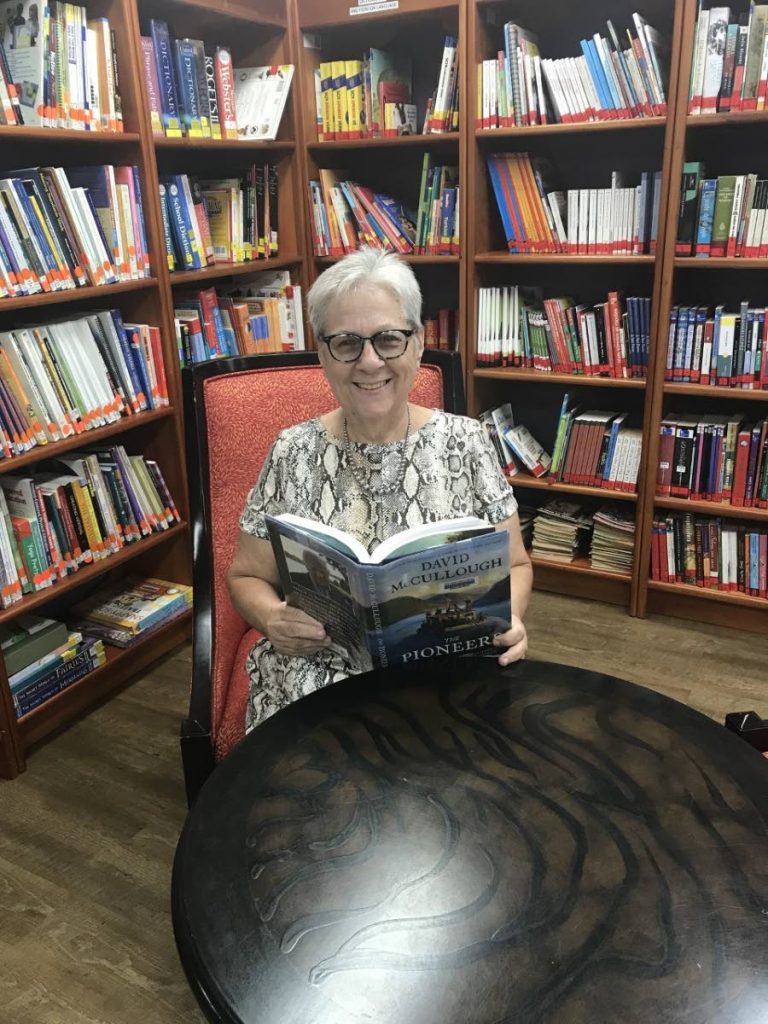Danger in your home

I HAVE been playing Scrabble online. This I tell you both as a confession and as a warning. My Scrabble-playing began when my daughter, Ijanaya, made it home on the last flight into Trinidad back in March. She introduced me to online Scrabble after a friend recommended it to her. It proved fun, and a good way to relax at the end of the day.
Soon, I realised challenges from other online Scrabble players were popping up regularly. This, too, I thought was nice. It didn’t take me long, however, to notice that male Scrabble players were quite weird and often downright lecherous.
Making just one move on the Scrabble board empowered them to hit the chat feature. They got straight to the point. “Where do you live, dear? Are you married? I love hiking and cooking? Do you?”
When the questions popped up, I quit the game immediately. I just wanted to play Scrabble. I didn’t want to be unkind, and I didn’t want to show prejudice against men so I accepted a few more Scrabble challenges, only to find I wasn’t wrong. A couple of times, I wrote back, “Too personal” before I hit the delete button for some out-of-timing man.
Women who played Scrabble never tried to initiate any conversations. They just played the game. Then, I started to notice the pictures the male players posted. Some of them try real hard to look sexy. One had grey strands of hair falling across his face. Men often like to pose for pictures with their dogs. Flabby old men try to show their muscles.
It would really be quite comical if it wasn’t so scary. Think of all the lonely, elderly women desperate for some conversation who might fall prey to these chatty men. After that, think of how easy it is for your children to fall prey to predators online.
As a librarian, I have always been shocked at how many children play games online with strangers and don’t think twice about the possible danger in that. They actually believe that their online partners are the ages they post. They trust that they are playing with teenagers. Even when I showed them videos of how middle-aged predators pretend to be their age, teens didn’t believe they were vulnerable.
This is why it is important for parents to monitor their children’s online activities – especially now since children are online so much for school. You might think your child is doing schoolwork, but they could be in some social media chatroom or playing with strangers.
It is better to try to prevent problems rather than deal with them when they occur. Predators are experts at convincing children that their parents are too strict or controlling. They have ways to make children believe they are capable of making decisions that adults should be making for them. They are good at controlling your children and turning them against you. Then you have to fight to get them back.
It’s good to sit down with children and talk to them about responsible online use. Forget trusting your children. They are led astray far too easily.
If possible, you should make sure that your children’s computer is in a place where you can monitor it. Having a computer in your child’s bedroom is never a good idea because it’s too difficult for you to maintain control as a parent.
Limiting time on the computer is also a good idea. A computer can become an addiction. The more your child is on a computer, the longer he has to explore and find trouble. I would suggest that students of all ages either read traditional, paperback books or read on a Kindle. Reading on their phone or their computer allows them to answer messages or stray off into cyberspace.
The point is that children can find themselves in trouble with strangers quite easily. I know this as a librarian, and look how easily I got sucked into potential trouble through something as innocent-looking as Scrabble.
Gone are the days when we can feel safe in our homes or feel that our children are safe in our homes. There are good videos on YouTube for you to show your child about online predators. They will complain about watching them, but the more information they have the better. Watch some yourself and choose which ones feel right to you. When it comes to computers and your children, you can’t be too careful.


Comments
"Danger in your home"